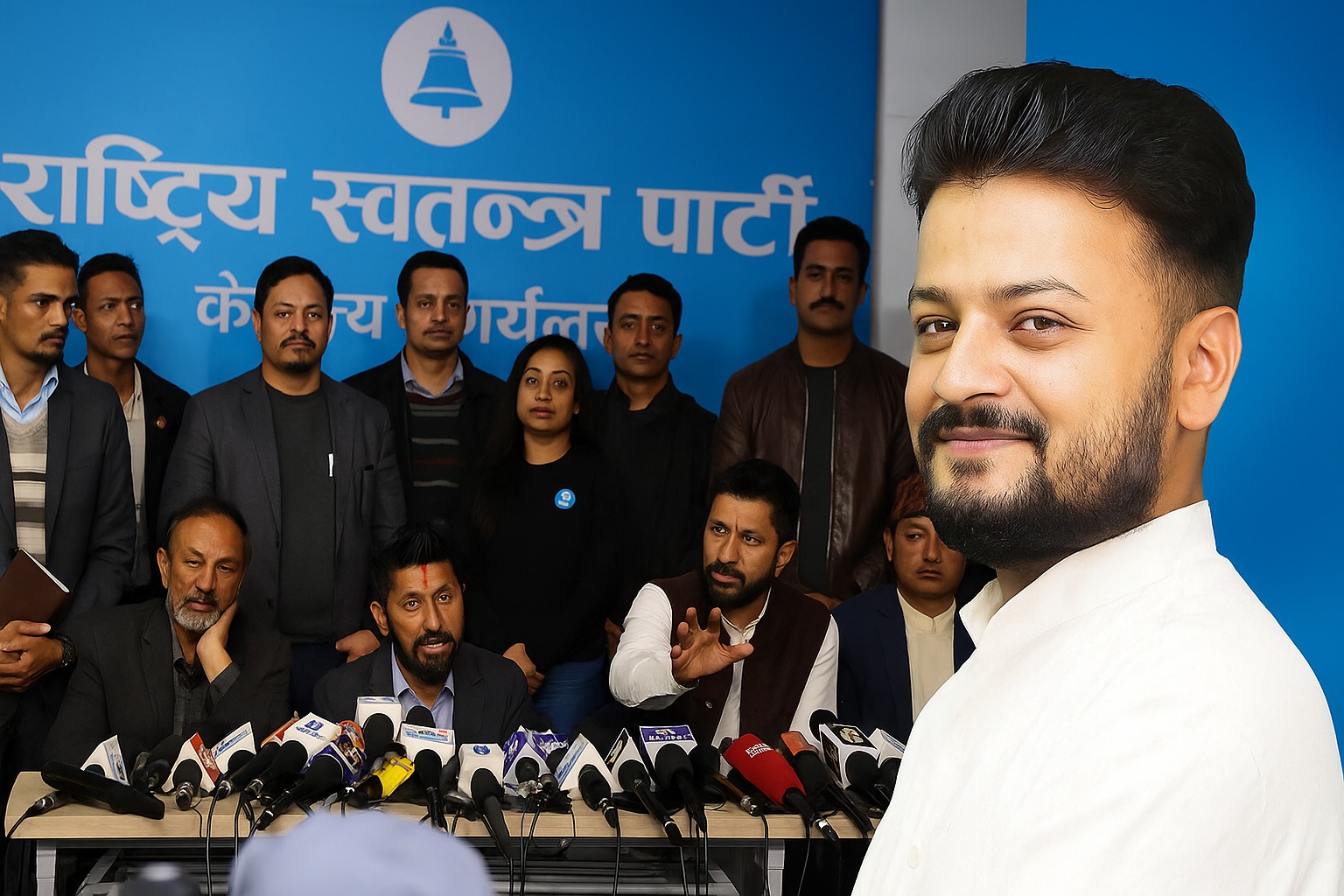After Court Reinstatement, Signs of Clash Between Justice Camp and Criminal Alliance in RSP

A new chapter of internal conflict appears to be unfolding within the Rastriya Swatantra Party (RSP). With former General Secretary Dr. Mukul Dhakal filing a writ petition in the Supreme Court alleging that his dismissal was illegal, the likelihood of his reinstatement is growing stronger. A letter issued by the Election Commission confirms that Dhakal is still the official General Secretary of the party, suggesting a possible shift in the party's internal power dynamics.
If the Supreme Court rules in favor of Dhakal and reinstates him as General Secretary, the RSP is expected to enter into a clear two-sided power struggle—on one side, Dr. Mukul Dhakal and his supporters advocating for justice and rule of law; on the other, an alleged criminal alliance comprising manpower brokers, blackmailing journalists, corrupt officials, foreign agents, smugglers, con artists, and cooperative fraudsters, who are believed to have taken control of the party leadership.
Tensions within the party escalated after the Election Commission clarified in a letter dated Asar 4 that the party’s leadership records had only been updated until Chaitra 20, 2080, and not thereafter. Based on that letter, Dhakal filed a writ at the Supreme Court on Asar 12. The court has scheduled a hearing for Asar 17 and has summoned both parties for discussion.
Meanwhile, accusations have surfaced that the party leadership is targeting Dhakal’s supporters for removal. Most recently, Rajesh Timilsina, the founding president of Koshi Province, and Kamal Babu Mainali, the founding spokesperson, reportedly fell victim to such actions by the party leadership.
Legal experts argue that attempting to remove Dhakal without formally updating the official party structure is, in itself, a violation of legal norms. Many consider Dhakal's reinstatement a likely outcome. Although the RSP had submitted a request to the Election Commission on 17 Shrawan 2081 to update its leadership records, the Commission stated that the necessary documents were incomplete, and hence no update was made.
According to Article 51 of the Political Parties Act, 2073, political parties are required to inform the Commission of any changes within 30 days. However, the Commission neither made such information public for nearly 11 months nor requested the missing documents from the party—raising questions about the Commission’s handling of the case.
If the court validates Dhakal's claim, a powerful reform movement is expected to rise within the party against the dominance of criminal elements. On one side will stand those committed to justice and integrity; on the other, entrenched networks driven by personal gain and influence, accused of using the party as a tool for self-interest.
This is no longer just a case of reinstating Mukul Dhakal—it is a decisive battle for the very soul of RSP. The question now is: Will Dr. Mukul Dhakal emerge as an "alternative force" to lead reforms within the party? Or will the RSP fall back under the grip of the old criminal network?
The Supreme Court hearing on Asar 17 will not only determine the future of Dhakal’s position but also shape the very existence and political direction of the Rastriya Swatantra Party. The real battle within the RSP has only just begun.
Mukul Dhakal Rabi Lamichhane
![From Kathmandu to the World: How Excel Students Are Winning Big [Admission Open]](https://nepalaaja.com/img/70194/medium/excel-college-info-eng-nep-2342.jpg)
